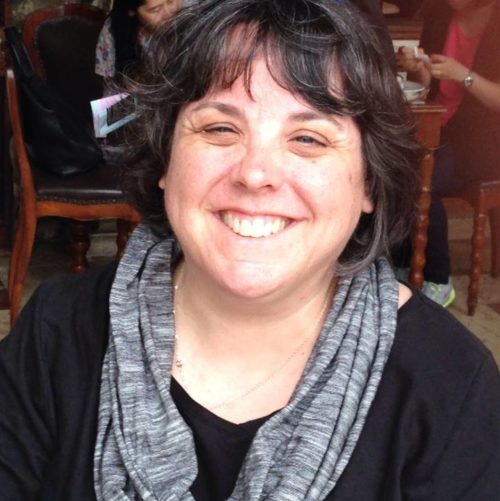Almost every Sunday, my minister sends us forth by declaring, “Remember: we live in a world where a resurrection has happened.” In other words, as he always reminds us, our lives should look different—we should be different—as we ever more fully come to understand and embrace the power and transformation of God’s work for us. Put yet another way, if the resurrection really happened, we best start acting like it.
But in this sure proclamation of the reality of new life, an equally important assertion is implied—the shadow side: that resurrection is required because death is real. Now obviously, we know this intellectually. But like our belief in the resurrection, it seems like we often effectively act as if we don’t quite believe it’s going to happen, particularly to us personally. And it surely doesn’t change how we live.
Until, that is, maybe it does. For me, that realization came seventeen years ago today when my mother died completely unexpectedly. No child (even if that child is 30 years old) probably ever thinks her parent is actually going to die, but knowing my hurricane of a mother, who hurtled through life with such great energy and verve and spirit, it never occurred to me that I wasn’t looking at years and years with her. If anything, I was anticipating dealing with her rather ornery old age. Ultimately, it made some sort of metaphorical sense that the only thing that could bring her down was an explosion in her brain—an undetected aneurysm. But she certainly wasn’t supposed to go when she was only 55 years old.
Seventeen years is, in many ways, a lifetime ago; indeed, if this grief were a child, it would be about to graduate from high school. It’s not the thing it once was, to be sure. On the other hand, its quiet, steady presence remains: I’m not that many years away now to being the same age as my mother when she died. And in the intervening years, more people dear to me have died far too young as well, taken by accident and illness. My younger self’s easy belief in the Psalmist’s prediction of at least “threescore and ten” has been obliterated. I am clear about the lack of guarantees.
Depressing as all that sounds, I think that’s a good thing. But then what?
In his “Eulogy for J.F.K,” W.H. Auden declares:
What he was, he was:
What he is fated to become
Depends on us
Remembering his death,
How we choose to live
Will decide its meaning.
I love that idea: “How we choose to live/Will decide its meaning.” It is such an affirmation of life, that “choos[ing] to live,” that not giving up in the face of despair. And it is an expression of legacy: how we live reflects on those that we love, whose spirit and work we continue to embody, quite literally. Our actions give testimony to those who had a hand in shaping us, be they family or friend. That’s a serious and profound responsibility. But one filled with joy, too.
Today, then, I think specifically of my mother’s legacy. I celebrate it in the laughter that surrounds my family wherever we go. I celebrate it in the intense debates we get into during our always leisurely dinners. I celebrate it in the faith that was the absolute center of my mother’s life—the one thing she wanted for her children above all else. I celebrate it in the lives of service my siblings and I have all tried to pursue. I celebrate it too in the incredible nurturing of children that my sister does as both a teacher and as a mother and in the extravagant hospitality my brother extends to the students he works with in his library.
And I remember most gratefully her absolute commitment to saying what needs to be said—and not waiting to say it. One never had any doubts about her love—and that is, perhaps, the greatest legacy of all.
There’s a lovely Wendell Berry poem that says what I’ve been trying to say more eloquently than I’ve been able to say it, so I leave with you it as my own benediction today. May you find no reason to “not give yourself away.” Time is of the essence.
“No, no, there is no going back”
–Wendell Berry
No, no, there is no going back.
Less and less you are
that possibility you were.
More and more you have become
those lives and deaths
that have belonged to you.
You have become a sort of grave
containing much that was
and is no more in time, beloved
then, now, and always.
And you have become a sort of tree
standing over a grave.
Now more than ever you can be
generous toward each day
that comes, young, to disappear
forever, and yet remain
unaging in the mind.
Every day you have less reason
not to give yourself away.
from A Timbered Choir: The Sabbath Poems, 1979-1997

